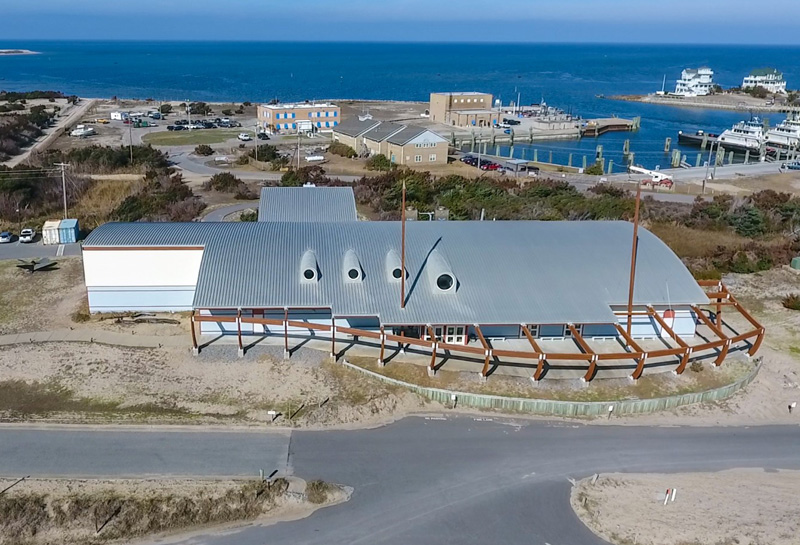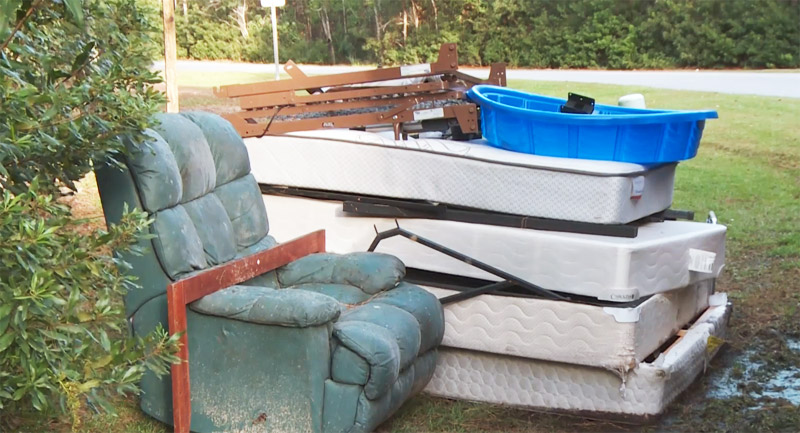Legislative Update: The gold rush in Raleigh is underway
To understand the legislative process in Raleigh, it’s helpful to watch the television program “Gold Rush.”
Each season, the reality show participants start with picking their ground, then digging and delivering dirt to the trammel where it is watered down and shook hard so that the gold settles in the mats where it is retrieved.
The legislators have chosen their ground – aka issues – and now are hauling rock, otherwise known as filing bills. Some bills have been fed into the trammels which are the various committees that will decide whether to make amendments, let them move forward as-is, or lay them on the table to be ignored this session.
Other bills have not yet had a first reading or been assigned to committee. It is too early in the process to guess which ones will be deemed gold, which is the moment when the governor signs them into law after they have passed both the House and the Senate.
Readers will just have to tune back in each week to learn the trials and tribulations of each piece of proposed legislation.
Thus far this session, a total of 113 bills and resolutions have been filed.
Senate Bill 24 might prompt a smile from the owners of a rum distillery soon to open in Manteo. If passed into law, the proposed legislation will allow the sale of distillery products for off-premise consumption and expand the list of options for where tastings can be offered. The sales would have to comply with the Alcohol Beverage Control Commission rules, which include applying excise and sales taxes and the following language would be applied to labels: “North Carolina Distillery Tour Commemorative Spirit.”
County and municipal officials will be keeping an eye on legislation aimed at further limiting local zoning and building standards.
House Bill 36 would limit aesthetic controls on one- and two-family dwellings by local governments unless related to historic sites or districts, needed to comply with the National Flood Insurance Program, or for safety concerns.
House Bill 34 would allow municipalities to deliver notice by regular mail to chronic violators of overgrown vegetation if there is no response to certified or registered mail. A notice also would have to be posted on the property.
House Bill 48 is a proposed joint resolution calling for a “Convention of the States limited to proposing amendments to the Constitution of the United States that impose fiscal restraints on the federal government, limit the power and jurisdiction of the federal government, and limit the terms of office for its officials and for members of Congress.”
Senate Bill 52 lays out a plan for respectful disposal of tattered and damaged U.S. and N.C. flags used by the state and its subdivisions. The legislation also, if passed, instructs that the Secretary of State will enroll all copies of the variously amended copies of the N.C. Constitution and give all previous copies to the Department of Cultural Resources which will place it in State Archives.
House Bill 49 is a request for an amendment to the N.C. Constitution to allow the creation of the Independent Redistricting Commission which would take effect in 2030 to be placed on a future General Election ballot. The new commission would develop three plans for redistricting and present them to the General Assembly to choose one. If the General Assembly does not pick one, the commission will make the choice and it will carry the same weight as the General Assembly. Rep. Paul Tine is a primary sponsor.
Senate Bill 34 would open the possibility of leasing water bottom for oyster farming even in the event of having submerged vegetation on the location. Sen. Bill Cook is one of the primary sponsors.
More changes to education are being sought.
Senate Bill 30 would, if passed and signed into law, change how the new report card grading system used to judge school performance would be calculated. Currently, the school achievement score accounts for 80 percent, but the bill aims to change that to 40 percent. The school growth score that is currently 20 percent of the calculation would change to 60 percent of the total sum.
Senate Bill 31 seeks to restore funding for Teaching Fellow Program Scholarships that were awarded previous to March 1, 2015. It also aims to restore the full program in the 2016-17 academic year.
House Bill 53, if passed into law, instructs the State Board of Education to grant permission for local school districts to use state funds for supplemental and differential salaries.
House Bill 35 would create the Legislative Task Force on Education Innovation. The 19 members of the task force would include nine appointed by the leadership in each chamber plus the state 2015 Teacher of the Year. A final report of recommendations would be due in time for the 2017 legislative session.
(Sandy Semans is a retired newspaper editor and reporter who now works as a free-lance writer. She lives in Stumpy Point. Her update on the goings-on in this session of the General Assembly will appear weekly in The Island Free Press, usually on Friday.)
PREVIOUSLY PUBLISHED 2015 LEGISLATIVE UPDATES
First bill filed would prohibit condemning property for economic development
Legislative Update: And they are off — sort of













